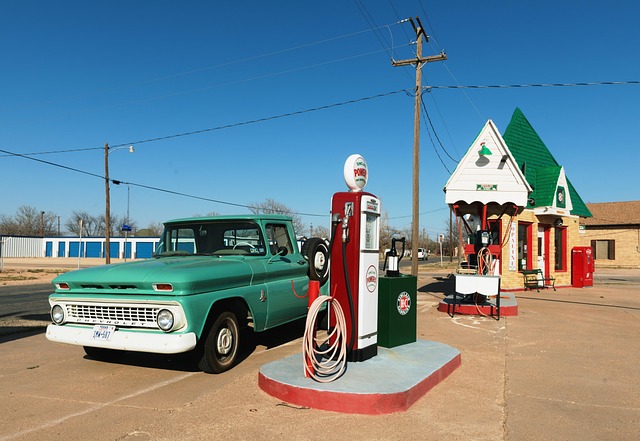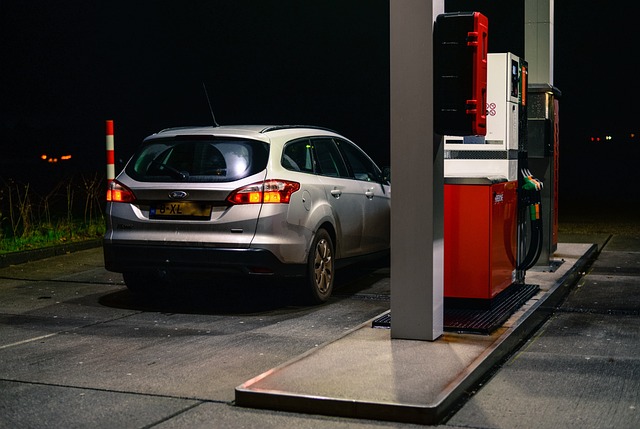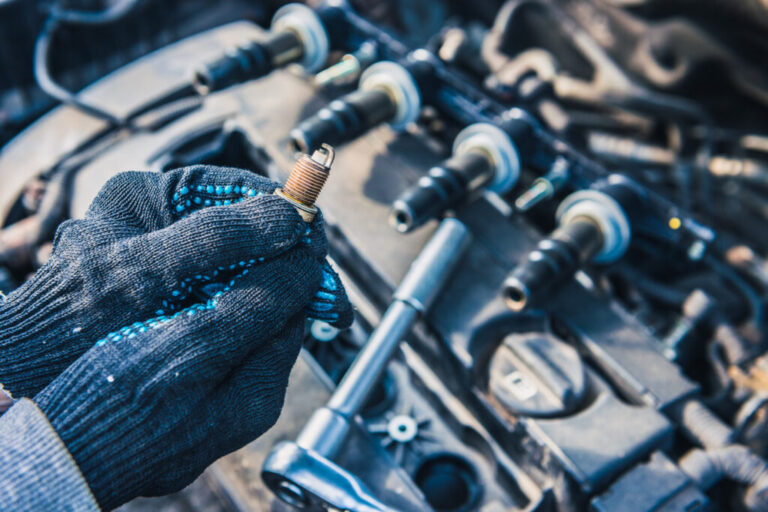When you press the accelerator, your car may judder for several causes. The catalytic converter, fuel pump, mass airflow sensor, fuel injectors, spark plugs, and even moisture buildup in your car could all be to blame.
If you drive a diesel-powered vehicle and observe jerking or hesitating during acceleration, you should get it checked out immediately. A jerking car can be an early warning indication of more serious issues. If neglected, it may result in serious and costly damage to your vehicle.
Below is a detail about Why does my diesel car judder when I accelerate, including what to do?
Why does my diesel car judder when I accelerate- 16 possible reasons
Dirty Air Filters
Cleaning the air before it enters the engine is essential, which is why air filters were invented. When these filters are clogged up, they cut down on the air going into the engine, affecting the efficiency of the combustion process.
Reasons: Jerking under acceleration can be caused by a fuel-air mixture that is too rich or lean due to inadequate airflow.
Fix: Improving engine performance requires keeping air filters in good condition through routine inspection, cleaning, or replacement. Clogged air filters harm acceleration, decrease fuel economy, and may even raise emissions.
Clogged Fuel Injectors
Diesel vehicles often jerk when put into high gear because of dirty fuel injectors. These critical parts’ job is to spray fuel evenly into the engine’s cylinders. Engine misfires occur when deposits and contaminants clog fuel injectors, preventing uniform distribution of fuel.
Reason: Injector nozzles can become clogged with carbon deposits and lose efficiency due to diesel fuel’s natural susceptibility to contamination. The problem can be made much worse by using polluted or low-quality fuel.
Fix: The best way to clean deposits from fuel injectors and restore optimal spray patterns is to use a fuel system cleaning. However, in extreme cases, it may be required to clean it by hand or replace it. Fuel injector problems can be kept to a minimum with regular maintenance and premium fuel.
Faulty spark plugs
Diesel engines, unlike gasoline engines, do not use spark plugs for ignition. Hence glow plugs must be used, especially while the engine is cold. Glow plugs preheat the cylinder air when it is too cold for the diesel fuel to ignite.
Reason: Worn-out or faulty glow plugs can result in poor ignition and incomplete combustion, leading to jerking during acceleration. Glow plugs have a limited lifespan and should be regularly inspected and replaced as needed.
Fix: Some diesel engines use spark plugs and glow plugs to regenerate the particulate filter. Problems with acceleration can be attributed, in part, to spark plug failure or wear. To maximize acceleration, check the condition of the glow plugs and the auxiliary spark plugs (if present).
Problems with the Fuel System
If there is a clog in the fuel line, your diesel car won’t be able to get up to speed as quickly as usual. Fuel filters protect injectors and other engine parts from debris and pollutants.
Reason: Glow plugs that are old or broken might result in jerky acceleration due to poor ignition and incomplete combustion. Glow plugs eventually lose their effectiveness. Therefore it’s crucial to inspect them and replace them as needed.
Fix: To fix this. You’ll have to analyze potential areas of obstruction, like blocked fuel filters and gasoline lines. Changing the fuel filter regularly will maintain the fuel system clear. The components of the fuel system benefit from the use of clean, high-quality gasoline as well.

Damaged Cylinders and Engine Misfires
Cylinders are crucial parts of an engine because they contain the pistons that generate the power. Misfires from worn or damaged cylinders can cause the vehicle to shudder when accelerating.
Reason: Inadequate maintenance, excessive heat, or lack of lubrication are just a few causes of cylinder failure. We will investigate what goes wrong with cylinders, the results, and how to fix or replace them.
Fix: Issues with cylinders are often difficult and time-consuming to diagnose and repair. Maintaining your engine regularly with oil changes and cooling system checks will protect your cylinders from damage and keep your engine running smoothly.
Catalytic Converter Issues
The purpose of the catalytic converter is to transform toxic gases into less dangerous ones, hence reducing harmful emissions. A clogged or malfunctioning catalytic converter does not affect acceleration directly, but it might cause problems with the vehicle’s acceleration due to an unbalanced air-fuel mixture.
Reason: Carbon deposits, oil residues, and other impurities can clog catalytic converters. Issues with the engine, such as frequent misfires or a lack of lubrication, can wear down the catalytic converter over time.
Fix: It may be necessary to have a professional clean or replace a clogged catalytic converter to restore engine performance and lower emissions.
Acceleration Cable Malfunctions
Most newer diesel engines have electronic throttle controls, although older ones may still utilize cables. Acceleration speed is regulated by the throttle plate, which is connected by cables to the accelerator pedal.
Reasons: Acceleration malfunctions or jerks can be caused by a broken or faulty acceleration cable.
Fix: Acceleration cables should be inspected and oiled often to keep them functioning smoothly. It is recommended to replace the cable immediately if it becomes broken.
Problems with Fuel Line
If the fuel lines that carry gas from the tank to the engine are clogged or broken, the engine won’t have the gas it needs to accelerate quickly.
Reasons: Leaks in gasoline lines caused by corrosion or damage can reduce fuel pressure and cause the engine to misfire.
Fix: Checking fuel lines regularly for indicators of wear, corrosion, or leaks can help catch and fix issues before they become fatal.
Defective Carburetors
Some older diesel engines may still employ carburetors, even though fuel injection is the norm for newer versions. Before entering the engine, the air-fuel mixture is regulated by the carburetor. Problems with the carburetors can affect how well the engine accelerates and how well it burns fuel.
Reasons: Carburetors are susceptible to dirt, debris, and fuel residue damage.
Fix: These problems can be avoided with routine maintenance and cleaning.

Turbocharger Problems
Turbochargers are a common component of today’s diesel engines. These tools reduce the volume of air entering, making it more efficient for the engine to burn fuel and generate more power. However, turbochargers can experience a wide range of problems that influence velocity.
Worn or broken turbine blades, oil leaks, and problems with the wastegate or variable geometry systems are typical causes of turbocharger failure.
Reasons: Jerking under acceleration can be caused by a malfunctioning turbocharger, which reduces boost pressure and airflow to the engine.
Fix: Oil changes and high-quality oil should be part of a routine maintenance schedule to keep the turbocharger in good working order and extend its lifespan. Turbocharger problems that need to be dealt with quickly might lead to extensive damage and costly repairs.
Moisture on the Distributor Cap
When moisture builds up on the distributor cap, especially in the winter, the engine can operate erratically and slow down. Distributor Cap High-voltage electricity is sent to the spark or glow plugs via the ignition system, including the distributor cap.
Fix: To reduce this risk, ensure the distributor cap is tightly sealed and park the car in a dry area whenever possible.
Malfunctioning EGR System
Part of the exhaust gases from diesel engines are recycled into the combustion chambers using the Exhaust Gas Recirculation (EGR) system. Emissions of nitrogen oxide (NOx) are decreased by this method. However, if the EGR system breaks down, it can result in an incorrect air-fuel mixture, which can cause subpar acceleration.
Both the EGR valve and the EGR cooler are susceptible to carbon buildup, which can cause the valve to become stuck in either the closed or open position.
Reasons: Too much exhaust gas can be released into the engine if the EGR valve is left open when it should be closed, resulting in inefficient combustion and a loss of power.
Fix: Carbon buildup can be avoided with routine EGR system maintenance and cleaning. Replacing the EGR valve or cooler may be necessary to get your engine running like new again.
Low Compression in Cylinders
The engine’s cylinders must be compressed properly for optimal combustion and power output. Worn piston rings, broken cylinder walls, or malfunctioning valves can all lead to lower compression, which can cause a loss of power and a jerking sensation when accelerating.
Fix: If you suspect that your cylinders aren’t being properly compressed, a compression test can help. If your engine’s compression is low, you may need to replace or repair some parts.
Faulty Throttle Position Sensor (TPS)
The Throttle location Sensor (TPS) communicates the accelerator pedal’s location to the engine control unit (ECU) so that the ECU may fine-tune the engine’s air-fuel ratio.
A malfunctioning or misaligned TPS can give false throttle readings, resulting in jerking under acceleration.
Fix: Problems with the TPS can be identified with a diagnostic scan and fixed with recalibration or replacement respectively.
Engine Control Unit (ECU) Issues
The ECU is the vehicle’s brain and controls the various engine functions depending on sensor data.
Reasons: Inadequate signals from a malfunctioning or outdated ECU to the engine’s parts might degrade performance.
Fix: Sometimes, problems with the ECU’s software can be fixed by flashing or updating it.
However, the ECU may need to be replaced if the hardware fails. Diagnostics and repairs to an ECU should only be attempted by those who have received proper training.
Intake Manifold Leaks
Intake Manifold Leaks can lower engine performance and cause sluggish acceleration.
Reasons: A mismatched air-fuel ratio can result from air being sucked into the engine through cracks in the intake manifold.
Fix: To maintain optimal engine performance. It is important to check the intake manifold for leaks and replace any damaged gaskets or seals.
FAQs
How do I stop my transmission from jerking?
There are typically two solutions to jerky transmissions
1. The Fluid Level is Too Low. If you drive a lot, you should check the transmission fluid level more often than once a month.
2. Old or charred fluid. Just drain and refill. Transmission fluid changes are messy and should be performed by a professional.
Why does my car jerk when I lightly accelerate?
If your car jerks when you accelerate, it’s probably because one or more of your spark plugs is malfunctioning. This will reduce your automobile’s performance over time. If you are concerned that this is the case, have a professional examine them and replace them if necessary.
Final Verdict
Diesel vehicle owners can take immediate action to resolve these difficulties by familiarizing themselves with the various causes and solutions given in this article.
Maintaining your diesel automobile with frequent inspections and repairs is essential to keeping it in top driving condition and avoiding unexpected expenses.

